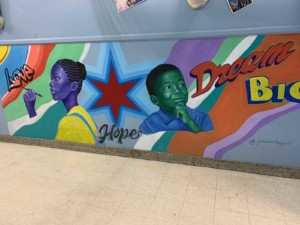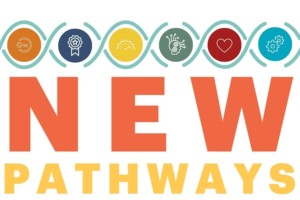Education is Equity Work: New Resource and Customizable Toolkit to Help

By: Rebecca E. Wolfe
Ask my son to write a paragraph on a favorite topic, and he’ll shut his door, hammer out a page in minutes and gamely take feedback – but only if you demand to see it. Conversely, my daughter will flop on the floor, ask for help, stare at the computer, type the bare minimum over several hours, ask you to read every new word that’s added but cry if you suggest a change.
It doesn’t take an expert educator to know that each learner needs a trusting relationship with someone who understands how to get each writer to produce their best work. Trying to coach them to write in the same way is a recipe for failure. As every parent or good educator knows, education at its heart is an equity proposition – meeting each learner where they are and helping them become the best version of themselves.
But equity at any kind of scale is not possible unless educators and schools have road maps and tools to build sustainable and equitable student-centered learning environments. The revised edition of Educator Competencies for Personalized, Learner-Centered Environments and new customizable toolkit is one such resource.
 When the first Educator Competencies was released in 2015, the idea of student-centered teaching and learning was just a few years into gaining attention in a handful of schools, districts and a scattering of fledgling innovation networks. Today, intentional and comprehensive personalized, learner-centered approaches have been documented in hundreds of schools, personalized learning appears in 39 states’ Elementary and Secondary Success Act plans and at least four states have made it the focus of their education reform efforts.
When the first Educator Competencies was released in 2015, the idea of student-centered teaching and learning was just a few years into gaining attention in a handful of schools, districts and a scattering of fledgling innovation networks. Today, intentional and comprehensive personalized, learner-centered approaches have been documented in hundreds of schools, personalized learning appears in 39 states’ Elementary and Secondary Success Act plans and at least four states have made it the focus of their education reform efforts.
Doing things differently in education is no longer optional, as teachers during the past eighteen months have had to find new ways to connect with students and engage not just their minds but their hearts. In the meantime, the pandemic’s disproportionate impact on the health and economic well-being of immigrants, people of color and communities where families earn incomes below the poverty line threw into high profile our society’s endemic inequities.
With this goal to better understand how to better center a critical focus on equity – we engaged with more than 60 new and diverse stakeholders for the 2020 edition of the Educator Competencies.
This new version of the Educator Competencies aims to expressly and concretely enable educators to come to terms with and remedy the ways in which America’s schools have negatively impacted Black students, as well as children from other marginalized groups. Because of this, we’ve included an explicit discussion and definition of equity in the document, added scannable icons to pick out the competencies that directly address equity and created a companion tool, “Centering Equity,” to be used alongside the primary publication.
As a nation, we are getting clearer and braver about exposing the ways current educational systems are designed to produce inequitable and even racist outcomes. As a parent myself, I wanted to make sure this version of the competencies stood firmly as a tool to celebrate learners’ assets and point towards a more just education system.
Are you using the competencies or want to connect with others on how they’re using them? Explore the map.
For more, see:
- TLA’s Real-Time Redesign Toolkit Helps Schools Make Practical and Positive Change
- A Platform to Support Competency-Based PBL
- Students at the Center Hub
This post was originally published at KnowledgeWorks.org.
Rebecca E. Wolfe oversees the research, impact and improvement efforts that reinforce KnowledgeWorks’ program and policy initiatives and advance the field of personalized, competency-based learning.
Stay in-the-know with innovations in learning by signing up for the weekly Smart Update.





Veena Reddy
Insightful. Great idea for equity and toolkit for separate studnets.